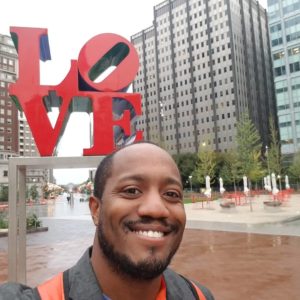“The arc of the moral universe is long, but it bends toward justice.”
This is one of my favorite Dr. Martin Luther King, Jr. quotes, but it leaves out a crucial point: the arc will not bend by itself. Someone has got to be the hammer. Earlier this month, I had the privilege to be a presenter and participant at the 2018 National Black Male Educators Convening in Philadelphia (#NBMEC18). I got to be with more than 1000 Black men like myself, committed to forcing this arc to bend.
In the United States, Black men make up only 2% ‘of the national teaching force. This is not enough. But focusing on increasing this number alone is not enough either. So, I’m compelled to share the two essential lessons I learned at #NBMEC18 that will help us narrow this gap and ensure that all children reach their full potential.
We need to address the gaps in the Black Male Educator pipeline at every level.
In an eye-opening panel discussion moderated by Brittany Packnett, former United States Secretary of Education Dr. John King pointed out the systemic challenges to increasing the dismal number of Black male educators in the classroom. In fact, as he pointed out, it should be unsurprising that we are at 2% considering Black males have less access to quality early childhood education programs, get suspended from school at disportionately higher rates, graduate from high school and attend college at lower rates.
Also, fewer of us major in education and fewer of us make it through teaching licensing processes. When we do, still fewer of us are hired. And even when Black male teachers make it to the classroom, we are more likely to leave.
This means that changing the 2% narrative isn’t just the job of the human resources department. It’s everyone’s job. At the second annual National Black Male Educators Convening (#NBMEC18), I learned of amazing efforts to recruit and retain Black male educators from leaders like Dr. Jennifer Johnson and Dr. Juliet Curci of Temple University who are building pipelines from high school.
I met so many Black men who served the community as paraprofessionals, teacher’s aides, and City Year members, who are already in schools and are being intentionally supported on their path to earning full teaching credentials.
I met a group of Black men committed to enhancing their ranks in preschool. I had to wait until seventh grade to have a Black male teacher, so I can only imagine what it would look like to have more Black men leading a class of preschoolers. And we’ve got national organizations like The Fellowship – Black Male Educators for Social Justice (the conference organizers), Profound Gentlemen, The Black Male Educators Alliance of Michigan doing this work out in the Midwest, and even online communities like #BMEsTalk on Twitter facilitated by Principal Byron Durias of Florida.
What can you do? Legendary Principal Sharif El-Mekki put it best: ask young Black men, “Have you ever considered leading a classroom? Have you ever considered becoming the teacher you felt you needed and deserved?” Because building a pipeline of Black male educators is everyone’s job.
Our students need a freedom-based pedagogy.
Numbers are not enough. What does adding Black men to our classrooms mean if all we do is send them to the classroom to teach curriculum that does not resonate with our children within a system that forces our students to either reject who they are, or become rejects?
This is why both keynote addresses from Marc Lamont Hill and Chris Emdin and a ton of sessions, provided by expert educators, stressed a reimagination of our work. When you look at everything that is at stake for our children, we can no longer tinker along the edges for a mild-mannered education reform. We need an education that truly liberates our students’ minds to unleash their full potential.
We must reimagine the classroom, as I explained in my session, on closing the critical thinking gap. Our classrooms need to serve as spaces that stops asking children “what” and “how to” and starts asking them “why” and “what if.”

We must reimagine parent engagement, recognizing, as Marc Lamont Hill astutely observed, that “for many of our parents, visiting their children’s school is like returning to the scene of a crime.” Let’s bring ourselves to their communities, their churches, their homes. We must reimagine our core purpose in doing this work, as Philadelphia educators Ismael Jimenez and Angela Crawford explained in their workshop on Liberatory Education. We must ask ourselves powerful questions about how race, class, gender and other identity constructions create barriers to listening to and being heard by students.
We must be fearless in this work, because there is nothing to be afraid of when truth is on your side. We must have unshakeable faith in our students. And an even more unshakeable faith in our belief to be leaders for our students. It’s not enough for us to pour our blood, sweat and tears into this work. We must love ourselves so we do not become empty vessels like so many Black men who leave the profession.
As Democrats for Education Reform leader Shavar Jeffries aptly noted, the simple act of seeking education in the United States is and always has been a revolutionary act. And after #NBMEC18, I’m excited to pull my hammer out because guess what?
Arc of the moral universe, we’ve got some bending to do.
Colin Seale is an educator, attorney, and critical thinking expert. He was also that kid that talked too much, “laughed too hard,” and was an all-around smart Alec that eventually suffered from #idontcaresyndrome in his high school years. He founded thinkLaw (www.thinkLaw.us), an award-winning organization to help educators leverage inquiry-based instructional strategies that can close the critical thinking gap and ensure they teach and REACH all students.

